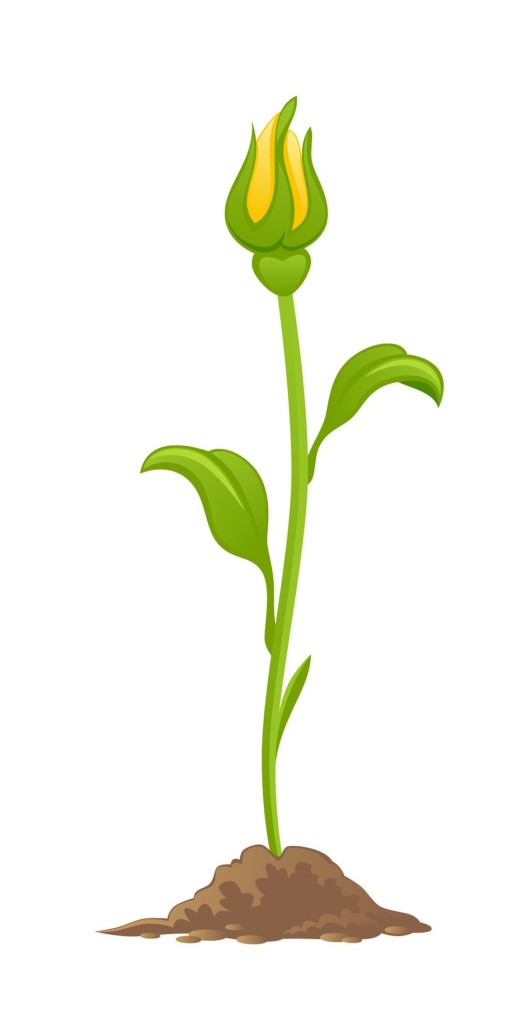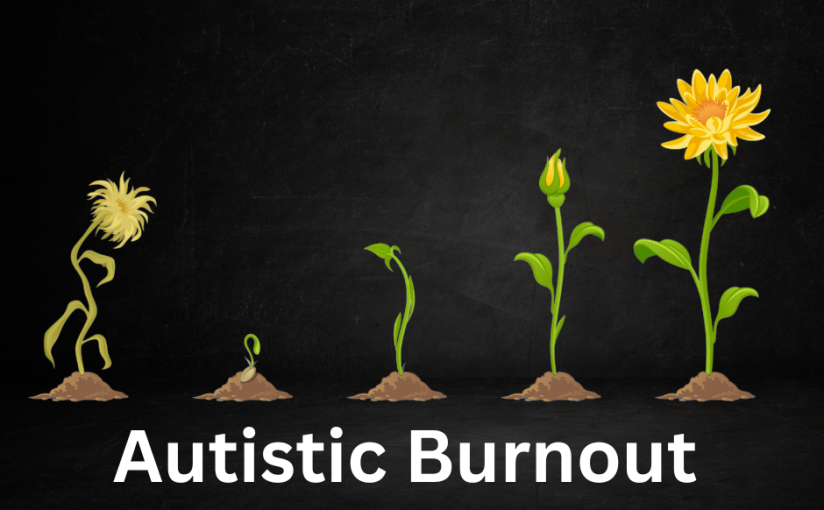(Note: this post is about “deep burnout” – which is usually a huge, life-altering event which often takes a very long period of time to recover from. People can experience shorter term burnout before, during or after a deep burnout, which is a different experience).
It is normal for humans to experience trauma. Trauma is part of human experience. We also have natural protective mechanisms to enable us to heal:
- Co-regulation
- Having a safe space
- Having peers and a network to go to for support
- Having time for hobbies or play
- Feeling loved and valued
But:
- What if the people around you are told they just have to be “stricter” and set firmer boundaries, instead of co-regulating with you? What if when you are struggling caregivers are taught that you are the problem?
- What if the people around you don’t know how much you are struggling because you are masking? What if they think things are ok when they are not?
- What if you have peers you can’t be yourself around because you are judged for your differences? What if you spend all your energy trying to conform because your peers don’t understand your struggles?
- What if you are labelled “obsessed” with your hobbies and interests? What if your way of playing and the way you deep dive into information are seen as wrong? What if you spend your time doing things you aren’t actually that interested in, because they are what your peers do and you are trying to fit in?
- What if you feel inadequate as yourself, and try to act like someone else to feel valued? Even if it is not true, what if you feel being loved is conditional, so you don’t feel able to be yourself?
Everyone needs these things, but they are so much harder to have if you are autistic and living in a world that isn’t really made for you. It is even harder as a young person – while occupational burnout is outlined by the World Health Organisation, school burnout isn’t given the same consideration
Because we don’t have access to one or all of these things, many autistic people can’t process or heal from trauma in the same way non-autistic people can. Because of this, over time, trauma builds up and becomes scarier and harder to manage. I call this the trauma/ stress cycle:
Eventually, your energy runs out and you break down.

You reach burnout: an incredibly difficult and painful experience.
Despite not having what you need, you thought you were finding a place in the world and things were heading in the right direction. It wasn’t perfect, but you were managing, just like everyone else was.
But you were wrong, and you couldn’t keep going with the way things were set up. This isn’t your fault, but it most definitely feels it is.

But this isn’t the end….
Things become much harder, and you no longer have the skills/ abilities you used to have. You feel much smaller and the world feels much scarier.
But this time round, hopefully people around you recognise that the world is the problem, not you.
And you need to start again, with the new understanding that the world is a very scary place. You need to have time and nurture to find safety again.
Over time, you can start to recognise that some parts of the world are safe, and you can start to find things you enjoy again.

The people around you recognise the harm the world has caused. Maybe the people around you start to recognise that things aren’t right for them either. Their whole lives, they have also been taught to conform, and that there is no other alternative. This whole time, they have tried to do the right thing and support you to survive in the same way they do. But this can’t work for everyone, and they have recognised that now.
Hopefully, people no longer expect you to conform – it will be ok to say no and recognise things aren’t right.

Then you will be able to learn about yourself – your strengths and things you need support with.
And you can find peers who accept you as yourself, rather than expecting you to be someone else.
Eventually, you can regain a sense of purpose and learn in a way that works for you. You can start to believe in yourself again.

Reflections
It sucks that it is normal for so many people to reach burnout before recognising what really matters.
Life would be much easier if we were taught from the beginning that it’s ok to be our natural selves. Imagine if we were taught to recognise we aren’t coping before burnout and to recognise if an environment isn’t suitable for what we need. Especially since recovering from burnout is REALLY bloody difficult.
While burnout recovery is bloody tough, at the end of the journey, you can find yourself again and flourish.
You can never go back to how you used to be, and the pain of burnout will always be a part of you. But like with grief, it will affect you less and less over time. The things you have learned through burnout can also help in the long term if you put them into practice.
One important thing to keep in mind is that burnout isn’t just about doing “too much”. I have always defined it as “when tasks/ expectations exceed the resources you have to deal with them over an extended period of time”. But i believe there are a few important things that this explanation doesn’t cover:
- Thoughts/ feelings play a huge role in burnout. This includes feelings of being inadequate and not accepting being different. When you struggle, this takes a huge emotional toll, but sometimes the feelings that come with wishing you didn’t struggle contribute more to burnout, than the struggle itself. Thoughts and feelings can then also become physical tasks. Because you feel inadequate, without the right support and positive regard towards yourself, you can place huge demands on yourself to try and fit in and struggle less. You may also be feeling confused about why it is “just you” who is struggling and because you may not even understand your own thoughts and emotions.
- The world is a flawed place, and this in itself can make existence incredibly hard at times. This is amplified by the structures we are part of.
For example, it is a strong societal expectation that you should go to school even if school isn’t necessarily the best place for you. The education system is underfunded, it doesn’t allow interest based learning (which works much better than following a curriculum you are disinterested in if you have a monotropic brain) and it runs off fear of failure (if you don’t go to school and get good grades you will never got a good job). If this doesn’t work for you, society tells you that you are the problem, despite the gigantic number of young people who struggle at school, which is clear evidence that struggling with school is a structural problem.
- Burnout isn’t just about tasks exceeding resources, but doing the wrong tasks. As humans, it is important that we feel we are moving from who we are right now to who we want to be. But who we want to be needs to be who we really want to be, not who we feel we need to be to gain approval from others.
Unfortunately, following your inner compass can take a lot of bravery/ tenacity because we are often judged/ criticised for being different from the norm.
If you feel what you are doing isn’t purposeful, or it is not in line with your inner compass, this is a huge contributor to burnout.
In the same vein, burnout recovery isn’t just about “recovery”. It is about discovering who you are, learning from what went wrong and finding a healthy way to live in what feels like an unhealthy world.
- You can reach burnout, in your efforts to prevent burnout. If a young person reaches burnout because an environment wasn’t suited to them, it is often the case that professionals think returning to a similar setting is what is needed. Even if they don’t think that is best, saving money often comes before a young person’s wellbeing when a Local Authority is the key decision maker. Fighting a Local Authority and the ignorance of people around you are gigantic tasks which mean that parents/ carers often plunge into burnout. It feels like an exchange of sorts, where a parent/ carer has a huge increase in tasks that can quite quickly exceed their resources, to stop the same from happening again to their young person.
(Thanks to Anna Veal for checking my ramble is ok to go out and for adding some thoughts!)
